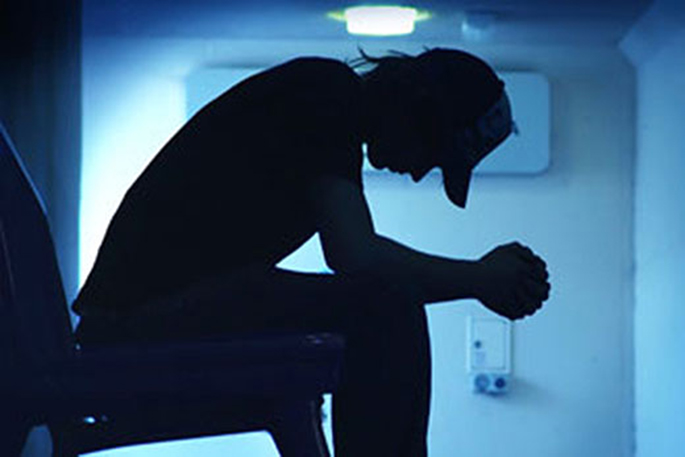High seclusion rates, particularly for Māori, in Bay of Plenty mental health facilities is worrying New Zealand's Chief Ombudsman.
Peter Boshier has published reports of follow-up visits to Te Toki Maurere in Whakatāne and Te Whare Maiangiangi in Tauranga in July and August last year.
Both are mental health inpatient units run by Bay of Plenty District Health Board.
Concerns around seclusion practices were reported for both facilities.
Seclusion is the involuntary confinement of a patient alone in a room or area from which the patient is physically prevented from leaving.
The 2021 inspection found the number of seclusion events at the Tauranga facility had increased since the last inspection, from 59 events in six months, to 85 events. The number of hours spent in seclusion had dropped, from 1413 to 833.
The inspection of Te Toki Maurere unit in Whakatāne also showed an increase in seclusion events, from 26 in six months in 2018 to 39 over six months in 2021.
However, data showed seclusion was generally reducing over time.
"My views on the use of seclusion are well-documented but I reiterate that I consider seclusion is a serious intervention with no therapeutic benefit and potentially harmful effects on patients," says Boshier.
"It concerns me greatly that reducing and eliminating its use seems to be making only slow progress, despite my regular calls for it to be stopped."
Although a project team has been established at Te Whare Maiangiangi to reduce high and increasing levels of seclusion at the facility since the Ombudsman's last inspection in 2018, Boshier says progress has been slow.
BOPDHB's Reducing Seclusion project team have acknowledged that Māori are still overrepresented in seclusion data, a fact Boshier also highlights in his report of Te Whare Maiangiangi.
"I have made a recommendation in my report that Te Whare Maiangiangi addresses its high use of seclusion, particularly as it relates to Māori," he says.
"This should simply should not be happening. There is absolutely no reason for Māori patients to be secluded more than any others. I urge the Ministry of Health to address this as a matter of urgency."
BOPDHB Mental Health and Addiction Services business leader Jen Boryer says action plans to address the recommendations are in place and have been provided to the Ombudsman.
'Improvements have been made in recent years such as the number of seclusion hours dropping by 41 per cent (from 1413 to 833) since the previous inspection,” says Boryer.
A clinical nurse specialist is also employed with a direct focus on seclusion reduction, and that role encompasses Safe Practice Effective Communication training with a focus on reducing seclusion for Māori, she says.
'Mental Health and Addiction Services are participating in workstreams as part of the Te Toi Ahorangi - Māori Wellbeing and Equity Strategy which will yield benefits for whānau. '
The report shows both units were over capacity at the time of inspection as well.
Te Toki Maurere in Whakatāne has an operating capacity of 10 beds and had 15 clients during the inspection in July 2021. Eight of the patients were men and seven were women.
Tauranga's Te Whare Maiangiangi has 24 beds and was at 120 per cent capacity during the inspection in August last year.
There were 29 tāngata whai ora in the unit, 20 women and nine men.
Boshier recommends the DHB address the over occupancy in Whakatāne of as a 'matter of urgency” as well as unit improves data-recording systems.
This is to ensure the collection and reporting of reliable and accurate seclusion information.
"Reliable and accurate data is essential to ensure that the unit continues its progress towards reducing and eliminating the use of seclusion," says Boshier.
Boryer says the BOPDHB is committed to the Health Quality and Safety Commission work on ensuring safety for all – 'Zero Seclusion – Safety and Dignity for All”.
She says significant work is underway on business cases with clinical service plans outlining new models of care.
'The business case for a new unit to replace Te Toki Maurere is a top priority for the BOPDHB.”
Acting deputy director-general mental health and addiction Philip Grady says The Ministry of Health is committed to reducing and eventually eliminating seclusion.
'Our guidelines are clear: seclusion should be an uncommon event, used only when there is an imminent risk of danger to the individual or others, and when no other safe and effective alternative is possible.”
Grady says there are a number of national and local DHB initiatives underway to reduce the use of seclusion and restraint in mental health services.
'We are pleased to see improvements have been made in some regions,” he says.
'Overall there is more work to be done to address the inequitable outcomes experienced by Māori who come under the current Mental Health Act.”
The Government is currently working to repeal and replace the Mental Health Act, because it has not kept pace with the times and may have contributed to these inequities, says Grady.
Significant investment has also been allocated to upgrading and improving existing mental health and addiction facilities and building new facilities, he says
-Local Democracy Reporting is Public Interest Journalism funded through NZ On Air




0 comments
Leave a Comment
You must be logged in to make a comment.